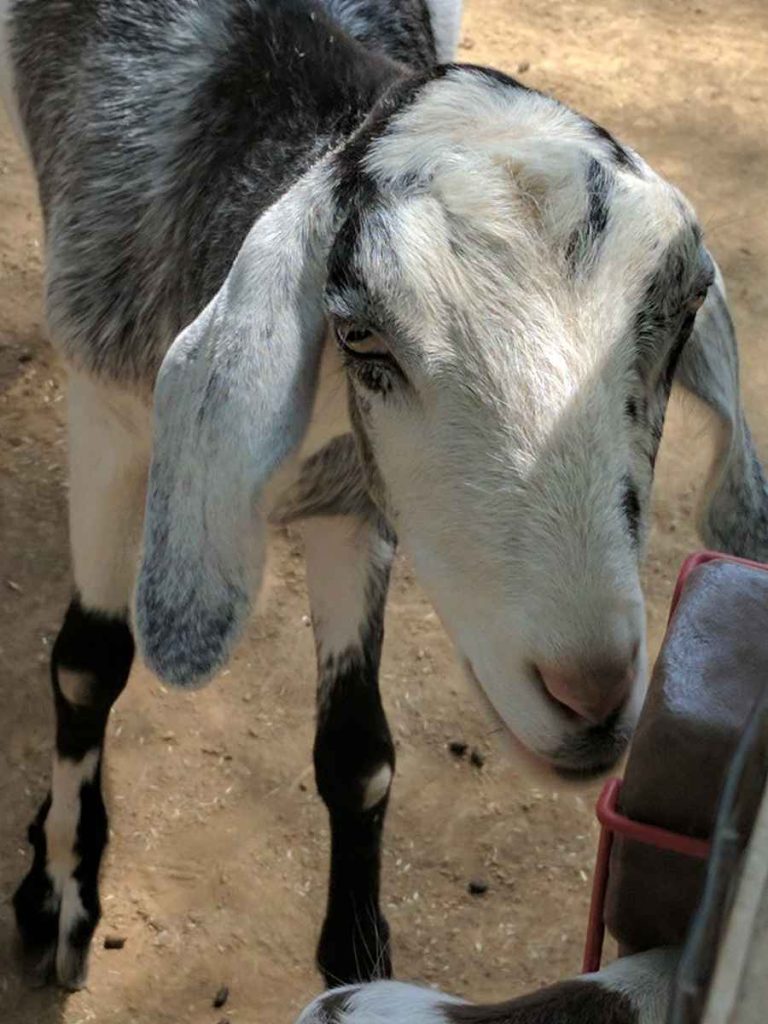Yes, goats can eat plastic, but it doesn’t mean they should eat it. Plastic consumption can lead to serious health problems for goats. So, before you let your goats roam free around any plastic waste, it’s essential to know the risks and potential dangers.
But why do goats eat plastic? Well, goats are curious creatures, and they often find something to be taken in their mouth. If they come across something that smells interesting, they may try to eat it. And unfortunately, plastic waste is often found in or near areas where goats graze, making it easy for them to consume it.
Be sure to dispose of any plastic items in your surroundings properly. This can help prevent your goats from coming into contact with this dangerous health hazard.
Can Goats Digest Plastic?

While goats may be able to eat plastic, they can’t digest it. In fact, plastic consumption can cause a variety of health problems for goats, including digestive issues, internal bleeding, and blockages.
The digestive system of a goat is designed to break down and digest plant matter, such as grass and hay. However, plastic is not a natural food source for goats, and their digestive systems are not equipped to process it.
Also, plastic can gather in a goat’s digestive system, causing blockages that can be fatal if left untreated.
Moreover, some types of plastic can leach harmful chemicals into a goat’s digestive system, leading to further health issues.
So, while goats may be able to eat plastic, it’s important to prevent them from doing so whenever possible.
Also Read: Can Goats Eat Cabbage – Is It Safe?
What happens if a goat eats plastic?
If a goat eats plastic, it can cause a range of health problems, some of which can be life-threatening. The health issues depend on the type of plastic consumed and how much amount they have consumed.
One of the main issues that can occur if a goat eats plastic is digestive problems. Plastic is not a natural food source for goats, and their digestive systems are not equipped to break it down properly. This can cause blockages in the digestive system, leading to constipation, diarrhoea, and abdominal pain.
Also, some types of plastic can release toxic chemicals into a goat’s digestive system, causing further health issues. Goats can consume low-density plastics such as plastic bags as well as high-density plastics.
If left untreated, plastic consumption can be fatal for goats. The blockages caused by plastic can lead to internal damage and eventually death. Even if the goat survives, it may suffer from long-term health problems such as malnutrition, loss of appetite, and infrequent stooling.
How to prevent goats from eating plastic?
Preventing goats from eating plastic for their health and well-being. Here are some steps you can take to keep your goats safe and healthy –
1. Proper disposal – Properly dispose of the area where goats might go and consume plastic there. This includes plastic bags, packaging materials, and any other plastic items that may be lying around.
2. Clean grazing areas – Keep your goats’ grazing areas clean and free of any bad things, including plastic waste. Make sure to regularly check the area for any plastic waste.
3. Provide nutrition – Make sure your goats are getting enough food and nutrients in their diet. If they are not getting the right nutrition, they may be more likely to try and eat non-food items such as plastic.
4. Use bitter-tasting solution – Some farmers have had success using taste deterrents to prevent goats from eating plastic. Such as hanging shiny objects in the grazing area or spraying a bitter-tasting solution on plastic items.
5. Supervision – keeping an eye on your goats while they are grazing can help prevent plastic consumption. If you notice your goat trying to eat plastic, remove the plastic from its reach.
By taking these steps, you can help prevent your goats from eating plastic and keep them healthy and happy.
Check this: What do you feed baby Quail?
What to do if your goat eats plastic?
If your goat has ingested plastic, act quickly to minimize the possible health risks. Here are some steps you can take if you suspect your goat has eaten plastic –
1. Check your goat – Keep a close eye on your goat’s behaviour and health. Look out for any signs of distress such as vomiting, diarrhoea, or loss of appetite.
2. Contact a veterinarian – If you suspect that your goat has eaten plastic, contact a veterinarian immediately. They can provide guidance on what to do next and may recommend bringing the goat in for an examination.
3. Provide supportive care – In some cases, the veterinarian may recommend providing supportive care such as fluids or medications to help the goat pass the plastic through its system. Follow their instructions closely and provide the necessary care to help your goat recover.
Once your goat recovers, take steps to prevent them from consuming plastic in the future. Properly dispose of plastic waste and regularly monitor the grazing areas.
Conclusion
Goats are known to be hardy and adaptable animals, and consuming plastic can be harmful to their health and well-being. Low-density plastics such as plastic bags, cellophane, and thin plastic can be particularly dangerous and can lead to a range of health problems if consumed.
Proper disposal of plastic waste, keeping grazing areas clean, providing adequate nutrition, and using bitter taste solutions are all effective ways to prevent goats from consuming plastic. Also, monitoring your goats while they graze and taking quick action if they do eat plastic can help minimize any potential health risks.
